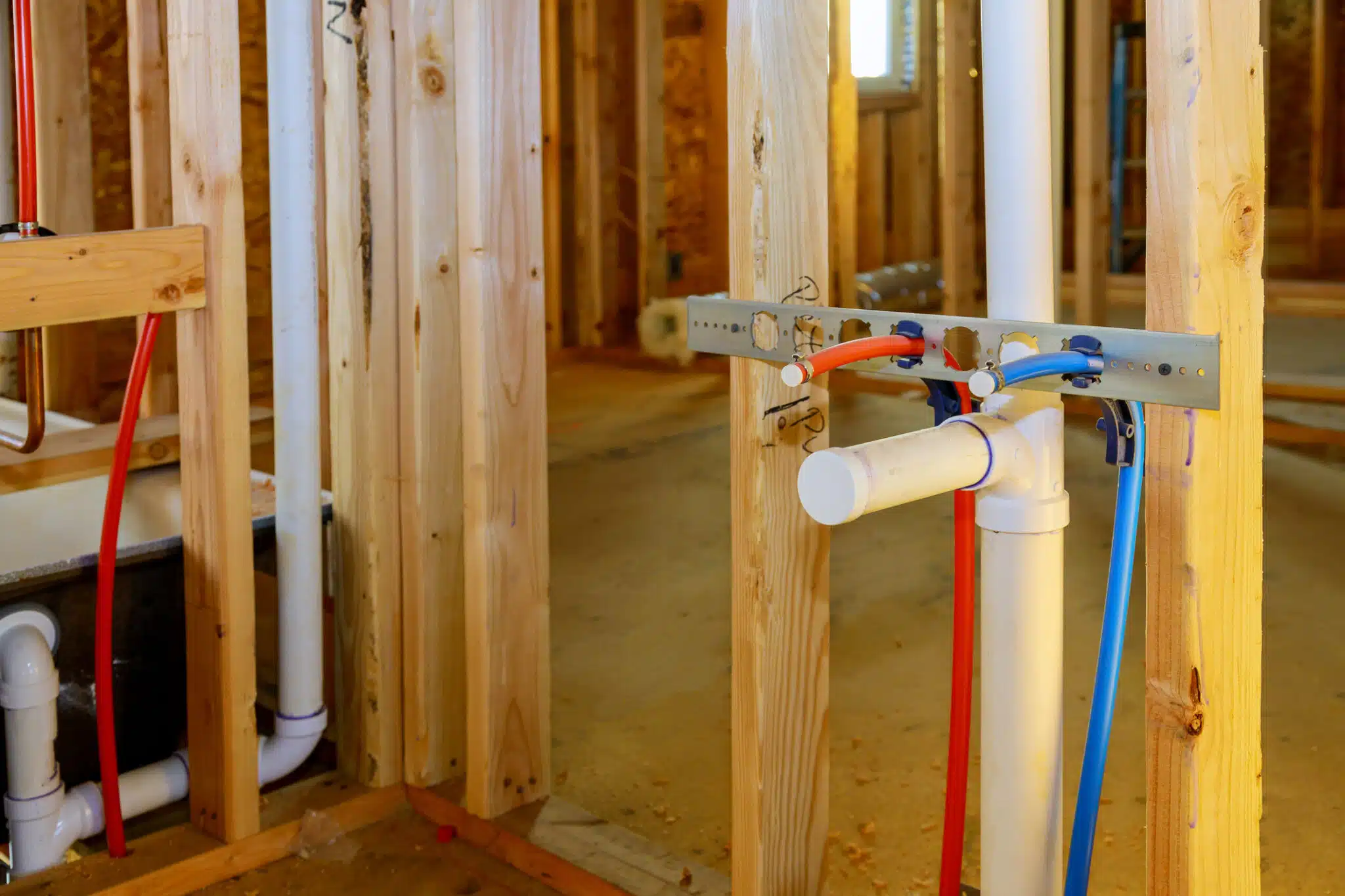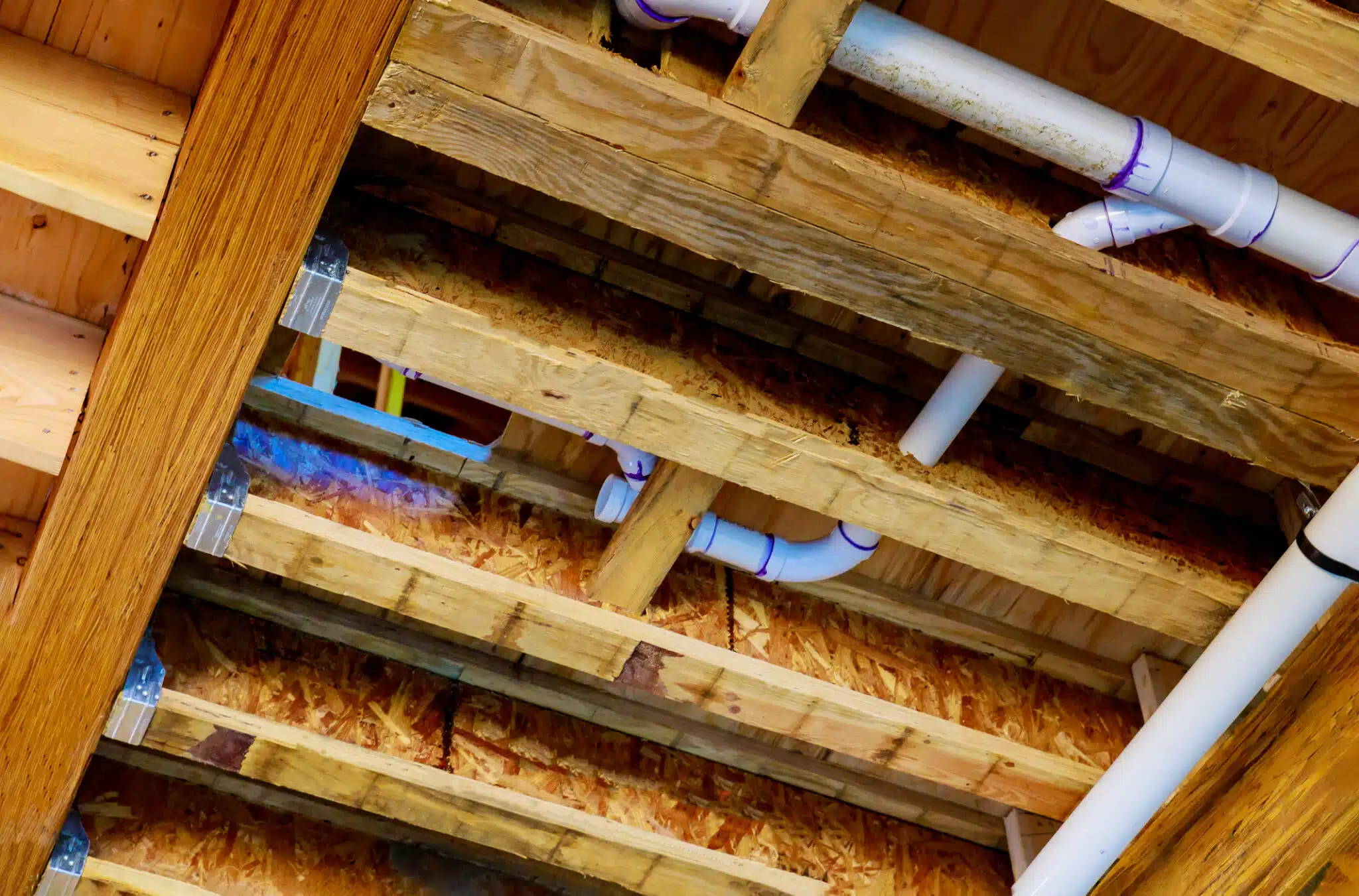Understanding the intricacies of whole house repiping is essential for homeowners in Lancaster, PA, and beyond. This process, crucial for maintaining the integrity of your home’s plumbing system, might seem daunting at first. However, recognizing the signs that demand such an extensive update can save you from future headaches and costly repairs. It’s about ensuring your home’s water system functions efficiently and safely.
In the heart of Lancaster or the bustling streets of York, PA, homes of all ages could be due for whole house repiping. The age of your plumbing system, frequent leaks, discolored water, and low water pressure are telltale signs that it’s time to consider this significant upgrade. Addressing these issues promptly can prevent more severe problems down the line, safeguarding your home’s value and your family’s health.
Choosing the right materials for whole house repiping is another critical decision that impacts not just the project’s longevity but also its cost-effectiveness and safety. Modern plumbing practices offer a variety of materials, each with its benefits and considerations. From durable copper to flexible PEX piping, the options are tailored to fit different needs and budgets, ensuring that every home in Lancaster and York can find a suitable solution.
The benefits of whole house repiping extend far beyond fixing immediate issues. This comprehensive update can significantly enhance your home’s water quality, increase its overall value, and provide peace of mind knowing that your plumbing system is up to current standards. For homeowners in Lancaster, PA, and York, PA, understanding the importance of this process is the first step toward a safer, more efficient home.
Recognizing the Signs That You Need Whole House Repiping
Recognizing when your home needs whole house repiping is crucial. In Lancaster, PA, homes with plumbing over 50 years old are prime candidates. Frequent leaks signal deteriorating pipes that can cause significant damage if ignored. Paying attention to these leaks can save you from more extensive and costly repairs down the line.
Discolored water is another clear sign that repiping might be necessary. It usually indicates rust and corrosion within your pipes, affecting water quality. If you notice a reddish or brown tint to your water, it’s time to consider updating your plumbing. Taking action early ensures your family has access to clean, safe water.
Low water pressure throughout your home can also suggest it’s time for whole house repiping. This issue often results from buildup or leaks within old pipes. Residents in York, PA, experiencing this problem should see it as a nudge towards evaluating their plumbing system. Addressing it promptly can restore proper water flow and pressure, enhancing daily life.
Finally, the occurrence of multiple pipe bursts, especially during colder months, should not be overlooked. Such events point to a system struggling to function and in need of a comprehensive upgrade. By recognizing these signs and opting for whole house repiping, homeowners can protect their property and improve their living environment significantly. This proactive approach is a smart investment in your home’s future.

The Various Materials Used in Whole House Repiping
When it comes to whole house repiping, homeowners have several material options, each with unique benefits. Copper pipes, known for their longevity and resistance to corrosion, offer a reliable choice for many in Lancaster, PA. They can handle high temperatures and are recyclable, making them an environmentally friendly option. However, the initial investment might be higher compared to other materials.
PEX piping presents a flexible and cost-effective alternative for whole house repiping projects. Its versatility allows for easier installation in tight spaces, reducing labor costs. Additionally, PEX is resistant to scale and chlorine, ensuring clean water flow. This material’s adaptability makes it a popular choice for many homes in York, PA.
For those considering durability alongside cost, PVC pipes could be the right fit. This material is lightweight, easy to work with, and ideal for water supply lines. It does not corrode or degrade over time, ensuring a long-lasting plumbing system. Plus, PVC pipes are generally more affordable, offering a budget-friendly repiping solution.
Choosing the right material for whole house repiping requires careful consideration of each option’s pros and cons. Homeowners must weigh factors like cost, durability, and installation requirements. Consulting with a professional plumber can provide valuable insights, helping to select the best material for your home’s specific needs. Ultimately, the right choice ensures a reliable and efficient plumbing system for years to come.
The Process of Whole House Repiping Explained
Understanding the process of whole house repiping begins with a thorough evaluation of your home’s plumbing system. A professional plumber will inspect your pipes to assess their condition and determine the extent of the necessary work. This step is crucial in Lancaster, PA, where homes might have unique plumbing challenges due to their age or construction. The assessment ensures that the repiping plan is tailored to address all issues effectively.
Next, homeowners will choose the appropriate material based on the plumber’s recommendations and their own preferences. This decision directly influences the project’s cost, duration, and the future maintenance of the plumbing system. In York, PA, for example, the choice between copper, PEX, or PVC pipes will depend on factors like water quality and the home’s layout. A clear understanding of each material’s benefits helps in making an informed decision that aligns with the homeowner’s needs and budget.
The actual repiping process involves removing old pipes and installing new ones throughout the house. This step can be invasive, as it requires access to walls and floors where pipes run. However, experienced plumbers employ strategies to minimize disruption and complete the work efficiently. They ensure that the new plumbing system is installed with precision, adhering to local building codes and standards for safety and performance.
Finally, after the new pipes are in place, thorough testing is conducted to confirm that the system functions correctly. This includes checking for leaks, ensuring proper water pressure, and verifying that water quality meets standards. Homeowners in Lancaster and York, PA, can then enjoy the peace of mind that comes with a fully updated and reliable plumbing system. Whole house repiping not only resolves existing issues but also significantly enhances the home’s value and safety.
Cost Considerations for Whole House Repiping
When considering whole house repiping, one of the first factors homeowners in Lancaster, PA, weigh is the cost. The expense varies based on the size of the home, the type of materials chosen, and the complexity of the installation. It’s important to get an accurate estimate from a professional to understand the financial commitment involved. Planning for this investment can help manage expectations and budgeting for the project.
In York, PA, the choice of piping material significantly influences the overall cost of repiping. Copper, while durable and resistant to corrosion, tends to be more expensive than alternatives like PEX or PVC. Each material comes with its own set of benefits and price points, allowing homeowners to balance cost with their specific needs and preferences. Making an informed decision on materials is key to controlling the project’s budget.
Labor costs also play a crucial role in the total expense of whole house repiping. The process can be labor-intensive, especially in homes with complex layouts or limited access to pipes. Homeowners should discuss the scope of work with their plumber to understand how labor will impact the final cost. Experienced professionals can offer efficient solutions that minimize disruption and expense.
Finally, unexpected issues discovered during the repiping process can affect the project’s cost. Older homes in Lancaster and York, PA, may reveal additional repairs needed once the walls are opened. While it’s wise to allocate a portion of the budget for unforeseen expenses, thorough initial inspections can help reduce surprises. Preparing for the possibility of additional costs ensures homeowners are not caught off guard during their whole house repiping project.
How to Prepare Your Home for Repiping
Preparing your home for whole house repiping requires thoughtful planning and organization. Start by clearing areas around your water fixtures, such as under sinks and around water heaters, to give plumbers easy access. It’s also wise to remove items from walls and ceilings that might be in the way, ensuring a smoother process. This step is crucial in Lancaster, PA, where homes might have unique layouts that challenge the repiping process.
Next, consider setting up a temporary water solution if the project is extensive. Some homeowners in York, PA, opt for this to maintain a water supply during critical parts of the repiping. You can discuss options with your plumber, who might suggest temporary lines or advise on the best course of action. This preparation minimizes disruption to your daily routines, keeping your household running smoothly.
Informing your family about the upcoming work is also important. Discuss the schedule and what to expect with everyone in your home to prepare them for the changes. Let them know about any temporary adjustments in water use or access to certain areas. Keeping everyone informed helps manage expectations and reduces stress associated with the project.
Lastly, verify that all necessary permits have been obtained before the work begins. Your plumber should handle this, but it’s good to check, as regulations in Lancaster and York, PA, can vary. Ensuring all paperwork is in order can prevent delays and ensure the project complies with local codes. Taking these preparatory steps will make the whole house repiping process as smooth and efficient as possible.
The Benefits of Updating Your Plumbing Infrastructure
Updating your plumbing infrastructure through whole house repiping offers significant benefits that extend well beyond mere aesthetics or temporary fixes. In Lancaster, PA, homeowners can experience a remarkable improvement in water quality. This is crucial for health, as clean water is essential for drinking, cooking, and bathing. The removal of old, corroded pipes eliminates contaminants, ensuring your family’s safety.
In addition to health benefits, whole house repiping can lead to substantial savings over time. York, PA, residents might notice a decrease in their water bills. This is because new pipes are more efficient and less prone to leaks, which can drive up costs unnecessarily. Moreover, the modern materials used in repiping, like PEX or copper, are designed to last longer, reducing the need for frequent repairs.
Another advantage is the increase in your home’s value. Potential buyers often look for homes with updated systems, knowing they won’t have to face immediate maintenance issues. A home in Lancaster with a newly repiped plumbing system becomes more attractive in the real estate market. This upgrade can be a selling point, distinguishing your property from others.
Finally, whole house repiping brings peace of mind. Homeowners in York can rest easy knowing their plumbing system is reliable and up to current standards. The assurance that you’ve mitigated the risk of unexpected plumbing failures allows you to focus on enjoying your home, rather than worrying about what could go wrong next.
Whole House Repiping: When to Call the Professionals
Deciding when to call in professionals for whole house repiping is a pivotal step in ensuring your home’s plumbing system is efficient and up to date. In Lancaster, PA, homeowners might not always recognize the complexity of repiping projects. It’s not just about replacing old pipes but also about understanding the layout and specific needs of your home. Professional plumbers have the expertise to navigate these challenges, ensuring a smooth transition to new piping.
In York, PA, the importance of hiring experienced professionals for whole house repiping cannot be overstated. They bring not only their skills but also the necessary tools and knowledge of local building codes. This expertise is crucial for a project that demands precision and adherence to regulations. By choosing the right team, homeowners can avoid potential issues and ensure the project’s success.
The process begins with a detailed inspection of your current plumbing system, a step that sets the foundation for the entire project. Professionals can identify which parts of your system need replacement and recommend the best materials for your needs. This initial assessment is vital for creating a clear, efficient plan for your whole house repiping. It’s an opportunity to address any concerns and set realistic expectations for the project’s timeline and outcome.
Finally, the peace of mind that comes with professional whole house repiping is invaluable. Knowing that experts are handling the update of your home’s plumbing allows you to focus on other aspects of your life. With their work, your system will not only meet current standards but also provide a reliable service for years to come. This assurance is a key reason why calling in professionals is a wise decision for homeowners in Lancaster and York, PA.
Maintaining Your New Plumbing System
After completing a whole house repiping project, the journey to ensure the longevity and efficiency of your new plumbing system begins. Regular inspections are key to catching potential issues early. In Lancaster, PA, homeowners can benefit from scheduling annual check-ups with a professional plumber. These inspections help identify any minor adjustments needed, ensuring the system continues to operate smoothly.
Adopting good household practices can also significantly extend the life of your new plumbing. For instance, being mindful of what goes down your drains in York, PA, can prevent unnecessary clogs and stress on your pipes. Avoiding harsh chemicals and opting for natural cleaning solutions can also preserve the integrity of your plumbing. Simple habits like these contribute to maintaining a healthy system.
Educating everyone in your home about the importance of caring for the new plumbing system is equally important. Ensuring that all family members understand what should and shouldn’t be flushed or washed down drains can prevent accidental damage. This collective effort helps maintain the system’s energy efficiency and prevents avoidable repairs, safeguarding your investment.
Lastly, staying informed about the latest in plumbing care and maintenance can offer additional benefits. Advancements in technology and new products can enhance the performance of your system. Homeowners in Lancaster and York, PA, can consult with their plumbers during annual inspections for updates and tips tailored to their specific setup. This proactive approach not only maintains but can improve your home’s plumbing infrastructure over time.

Frequently Asked Questions
What is whole house repiping?
Whole house repiping involves replacing all the water pipes in your home. This process ensures your plumbing system works efficiently and safely. It’s a solution for homes with old, corroded, or leaky pipes. By updating your plumbing, you enhance water quality and pressure throughout your house.
How long does repiping take?
The duration of whole house repiping largely depends on the size of your home and the complexity of the plumbing. Typically, it can take anywhere from a few days to a week. A skilled team works efficiently to minimize disruption to your daily routine. Rest assured, Benjamin Franklin Plumbing aims to complete the job with speed and precision, ensuring a smooth and hassle-free process.
What materials are best for repiping?
Choosing the right materials for whole house repiping is crucial for long-lasting results. Copper is popular for its durability and resistance to corrosion. PEX, a flexible plastic tubing, offers a cost-effective and easy-to-install alternative. Both options ensure a reliable and efficient plumbing system, enhancing your home’s water flow and quality.
When should you consider whole house repiping?
If your home often faces low water pressure or discolored water, it might be time for whole house repiping. These issues usually signal aging or corroded pipes. Additionally, frequent leaks can indicate that your plumbing system is failing. Trust Benjamin Franklin Plumbing to assess and address these concerns, ensuring your home’s plumbing is efficient and reliable.
Can repiping improve water pressure?
Yes, repiping can significantly boost your home’s water pressure. Old, corroded pipes restrict water flow, leading to weak pressure. By replacing these with new, efficient pipes, water moves freely, enhancing pressure throughout your house. This upgrade ensures a steady, strong flow for all your water needs.









